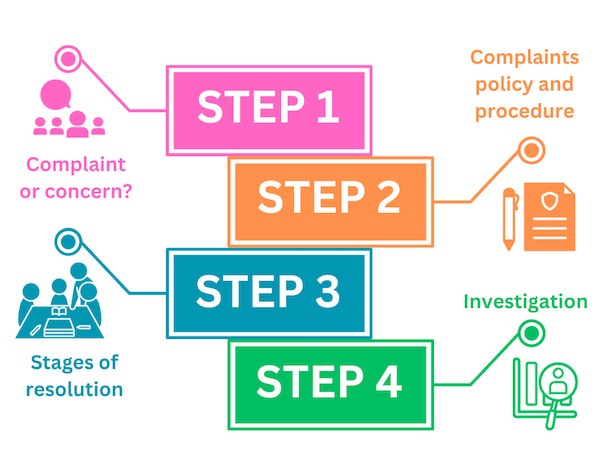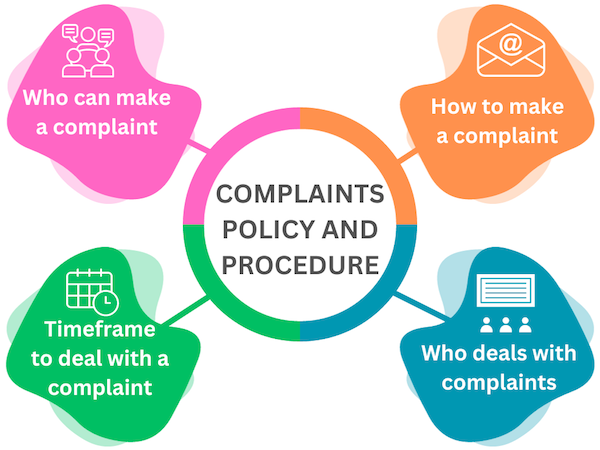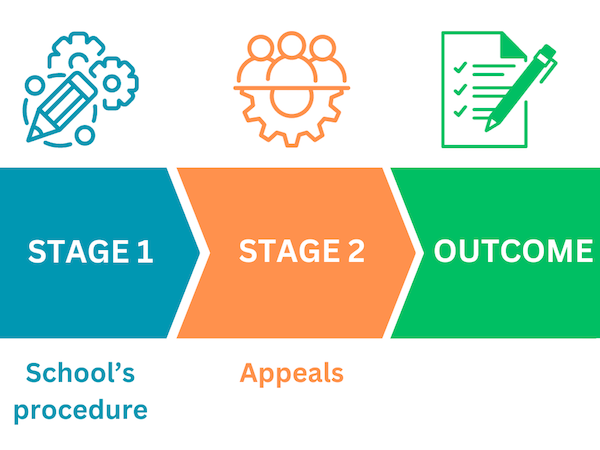When it comes to complaints, it's essential to take prompt action to maintain positive relationships with parents and prevent damage to your school's reputation. Caroline Collins advises how to manage the complaints process and communicate outcomes openly.

Nobody wants to receive a complaint but they happen. In schools, the complaint is usually from an aggrieved parent. The key to dealing with a complaint is to do so quickly. A complainant is more likely to be satisfied if the school takes action swiftly than if it is allowed to go unresolved for a long time.
To help manage complaints, schools must:
Schools are a community and parents are key stakeholders, so it's important to have good relationships with them. If schools fail to resolve complaints quickly, they risk:
This blog examines how schools can investigate and deal with complaints to avoid those risks.

Before spending excessive time dealing with an issue raised, the school must determine whether it is a complaint or a concern. The Department for Education (DfE) has given two clear definitions to help schools to decide. Its definitions are:
'A concern is an expression of worry or doubt about something that is considered important for which reassurances are sought.'
'A complaint is an expression or statement of dissatisfaction about actions taken or a lack of action.'
Concerns
If the school decides the issue is a concern, it can deal with this informally. The class teacher or appropriate staff member should speak to the complainant in an informal setting. Home time in the playground is often a good place to do this. The staff member can take the complainant aside to listen to the concern and provide reassurances.
All schools must legally have a complaints policy that is available to parents. The policy and procedure should include the following.

1. Who can make a complaint
The policy should clarify that anybody can make a complaint. It does not have to be parents or carers.
2. How to make a complaint
In this section of the policy, the school should make it clear how to make complaints. Standard practice is in writing (including email), by telephone or in person. The school might even have a complaints form that it can include in the policy and place on the school website.
3. Who deals with complaints
It's important that the policy makes it clear who will deal with complaints.
If the complaint is a general one, it would normally be:
If the complaint concerns a staff member, the policy should clarify who would receive the complaint. This is usually the headteacher but it might be a head of year or key stage coordinator.
The policy should state that if the complaint is about the headteacher, it should go to the chair of governors at the school address.
4. Timeframe for dealing with complaints
Your school policy must outline the timeframe for dealing with complaints. It should also give a timeframe for the complaint to be received. This might be up to three months after the incident. Detailing this in the policy will ensure the school does not receive historical complaints. Within the timeframe section of the policy, the school should make it clear how it will deal with complaints received during school holidays. A sentence to say that it will be considered as received on the first day of the new term would be sufficient.

In the complaints procedure, outline the stages of resolution. Schools can choose how many stages they will include but two stages denote good practice. The procedures will provide clear details about these stages.
Stage 1
This is the first stage of the complaints procedure. The school's procedure will detail what Stage 1 entails. It will:
It will also state what the response will include, such as:
Outline what the complainant should do if they are unsatisfied with the headteacher's decision and outcome.
Stage 2
A committee of governors undertakes Stage 2. This stage occurs when there are appeals against the outcome of Stage 1. The school's procedure will detail what Stage 2 entails. It will:
The investigation is the school's opportunity to:
During the investigation, the headteacher or investigating officer will:
If the investigation is delegated to another member of SLT, they should present their findings to the headteacher. The headteacher is solely responsible for making the final decision.
In an ideal world, there would be no complaints. What schools need to do is try their very hardest to avoid receiving complaints. Often, complaints are about how a teacher has (or hasn't) behaved. Schools can help avoid these complaints through:
If parents feel they can speak openly to the school and be listened to, there is less chance a formal complaint will land on your door. Give parents an opportunity to speak to school staff through: